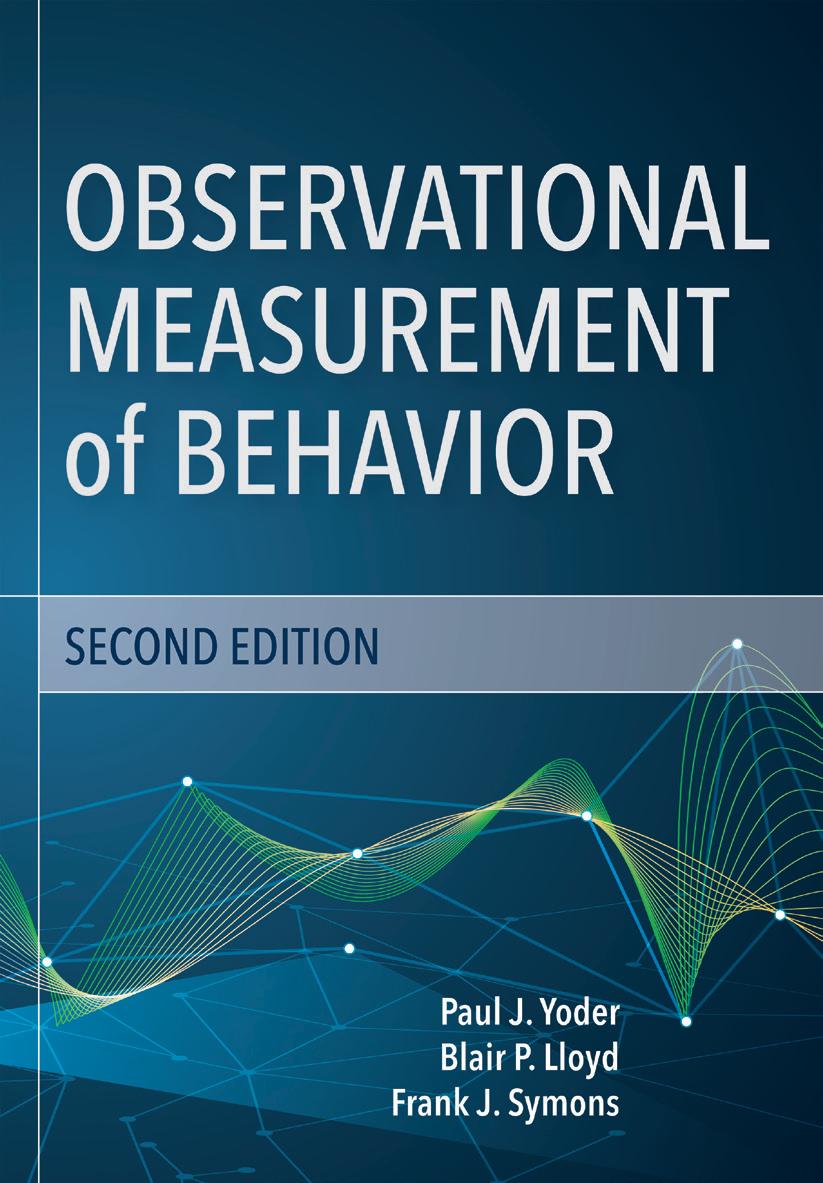
2 minute read
Behavioral and Psychiatric Disorders

ORDER EXAM COPY

CONTENTS
I. FOUNDATIONAL TOPICS 1 . Introduction to Systematic Observation and Measurement Contexts 2. Validation of Observational Variables 3. Estimating Stable Measures of Generalized Person Characteristics Through Systematic Observation 4. Designing or Adapting Coding Manuals 5. Coding 6. Common Metrics of Observational Variables 7. Observer Training and Preventing Observer Drift 8. Interobserver Reliability of Observational Variables II. ADVANCED TOPICS 9. Introduction to Sequential Analysis 10. Research Questions Involving Sequential Associations 11 . Generalizability Theory III. PUTTING IT ALL TOGETHER 12. Summary of Recommendations for Best Practices in Observational Measurement
By Paul J. Yoder, Ph.D. (Vanderbilt University), Blair P. Lloyd, Ph.D., BCBA-D (Vanderbilt University), & Frank J. Symons, Ph.D. (University of Minnesota)


An essential textbook for anyone preparing to be a researcher, this comprehensive volume introduces graduate students to key principles of observational measurement of behavior. Based on a course the highly respected authors taught at Vanderbilt University and the University of Minnesota, this text delves deeply into a highly effective approach to observational measurement: systematic observation.
Students will master both the theoretical principles of systematic observation and recommended research methods and techniques. They’ll learn from practical examples that illustrate complex concepts, clear explanations of recommended research methods, definitions of key terms, and exercises and assignments that help them practice putting principles into action. Online companion materials include two six-month licenses for proprietary observational software that students can use to complete the exercises and assignments in this book.
Ideal for use in research methodology courses in diverse fields—including special education, communication sciences, psychology, and social work—this fundamental graduate text will prepare future researchers to skillfully collect, summarize, and communicate their observations of children’s behavior.
STUDENTS WILL: • Fully understand key methods of observational research and measurement • Get comprehensive information on both foundational and advanced topics • Learn from real-world examples based on the authors’ experience • Apply specific recommendations for effective techniques and best practices ONLINE COMPANION MATERIALS: To enhance their courses, instructors will get a full package of online materials, including two six-month licenses for observational software, a media file students can use to practice coding behaviors, a suggested schedule for a semester-long course, exercises for students, and assignments with corresponding grading rubrics.




